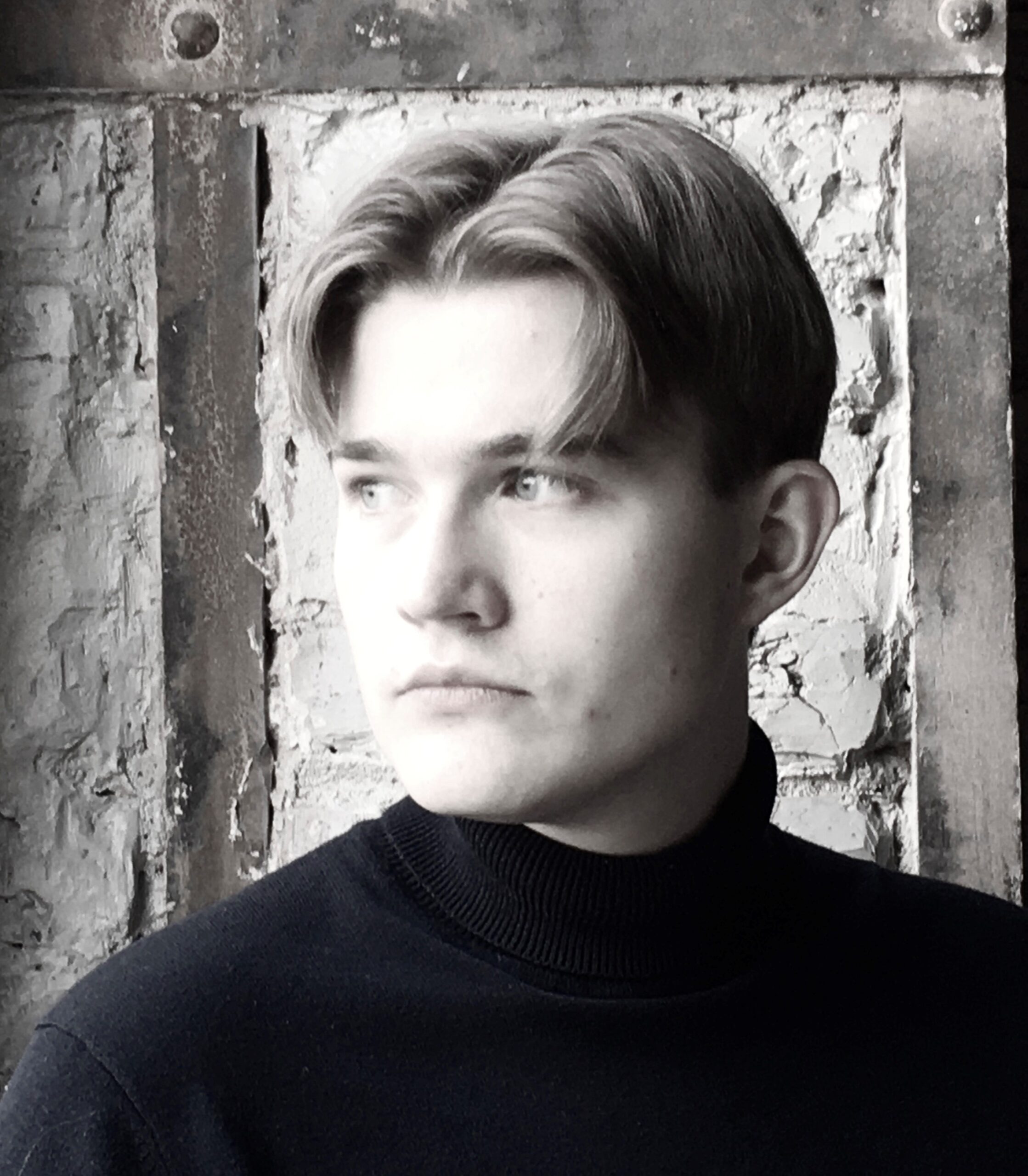By Samuel Tchorek-Bentall
“Why do they have to hold the World Economic Forum at Davos, of all places?” a friend once asked me. “It’s a travesty! Sacrilege! Davos is the town of Thomas Mann, of serious ideas, of tragic choices, of intellectual battles, of magic, of spiritual and artistic magic, the magic of the mountain! If billionaires and politicians have to meet up every year to congratulate themselves on their wealth and power, can’t they do it somewhere else?”
I agreed initially, but later on, I started wondering: is the world Thomas Mann conjured up in The Magic Mountain so very different from the world of the World Economic Forum? What if the latter is the former’s legitimate heir?
In recent years, Olga Tokarczuk has been thinking similar thoughts. “I have always wondered,” she said in May, “how it could ever have been possible for Hans Castorp [the main protagonist of The Magic Mountain] to spend seven years in such a luxurious place as Davos. It must have cost him a fortune!”
Like the ruling elites of today, Hans Castorp and his fellow residents of the International Sanatorium Berghof live in a perfectly insulated bubble, one which allows them to pursue their intellectual battles without ever having to step out into the world of the living.
In her latest novel, Empuzjon, her first since The Book of Jacob (2014), Tokarczuk revisits the unreal world of The Magic Mountain, intent on revealing its secrets and shattering its silence. She says that in writing Empuzjon, she wanted to dig around in Mann’s creation, lovingly, without unnecessary bitterness. The result is a novel of mixed emotions and blurred boundaries, a bittersweet encounter with Europe’s literary legacy.
Olga Tokarczuk's first new novel in eight years, and her first since winning the Nobel Prize in Literature, will be published on 1 June.
"Empuzjon" follows a student from Lviv who visits a health resort in the village of Görbersdorf (now Sokołowsko) in Lower Silesia in 1913 pic.twitter.com/ucAMXvv8eg
— Notes from Poland 🇵🇱 (@notesfrompoland) April 11, 2022
It begins in September 1913. Mieczysław Wojnicz, a twenty-four-year-old student of hydraulic and hydrologic engineering from Lviv, arrives in the Silesian village of Görbersdorf, a popular health resort for tubercular patients and other assorted convalescents. Although Görbersdorf is Davos’s senior relative, it is much less elegant than its Alpine counterpart, and its lung-sick residents spend much of their time obsessing over money and status.
The people Wojnicz interacts with during his (brief) month-long stay in this humid, windless village are pale reflections of the mythical figures that fight over young Hans Castorp’s soul. They have taken up residence at Wilhelm Opitz’s Guesthouse for Gentlemen, a medium-sized, relatively inexpensive establishment, since none of them can afford to stay at the statelier kurhaus.
Every evening, Herr Opitz’s guests – all men, of course – gather in the dining room to discuss the major issues of the day and share a glass or two of Schwärmerei, the local inebriant, mildly hallucinogenic in its effects
Though their conversations revolve around a host of lofty questions – Is monarchy superior to democracy? Is socialism a solution to humanity’s problems? Is the nation state a transitory political form? – once the Schwärmerei kicks in, the men are unable to sustain their interest and soon descend into spiritless stupor.
The most talkative members of the guesthouse’s confraternity are August August, a Viennese professor of Greek and Latin whose parents, “in a fit of anarchist humour,” gave him a name identical to his surname, and Longin Lukas, of Königsberg, East Prussia, a history teacher, alcoholic, and staunch defender of traditional values, whose living expenses, his cohabitants suspect, are covered by his daughter.
Like The Magic Mountain’s Naphta and Settembrini, August the humanist socialist and Lukas the Catholic traditionalist spend much of their time immersed in tumultuous debate. Unlike Mann’s protagonists, however, August and Lukas are incapable of expressing a single penetrating thought.
In the end, they aren’t even able to disagree with each other. Their ostensibly contrasting views always seem to converge on one incontrovertible truth, repeated again and again in a variety of forms throughout the novel: that the female brain is smaller than its male counterpart; that women by nature are delicate and sensitive, and are therefore inclined to act without thinking; that women belong to an earlier stage of human evolution; that women are socially challenged, and thus must always rely on the support of men; that the female mind is a primitive atavism in comparison with the more civilised mind of man; that the existence of women is justified only by the biological fact of motherhood; that the female body belongs not just to individual women, but to humankind in general; that nature blessed the female body with the gift of fertility, but denied the female mind the ability to control it; and so on and so forth, ad nauseam.
Lest anyone assume that her book is a product of inverse sexism, Tokarczuk assures her readers that all the misogynist passages in Empuzjon are taken from the crème de la crème of the Western Canon, including St Augustine, Conrad, Darwin, Freud, Hesiod, Lawrence, Milton, Nietzsche, Plato, Racine, Shakespeare, Swift, Wagner, and Yeats. By imbibing and regurgitating the wisdom of Europe’s greatest minds, the residents of Herr Opitz’s guesthouse partake in a veritable banquet of patriarchal ideas, a Platonic symposium dedicated to masculine self-affirmation.
It is just such a sexist symposium that Tokarczuk dubs an empuzjon (or “empusium,” in English translation), a neologism derived from the Greek Empousa and modelled – incorrectly, from a strictly philological point of view – on symposion, the Greek word for “banquet”.
Polish Nobel laureate Olga Tokarczuk has drawn criticism after saying that she writes her books “for intelligent people” and that “literature is not for idiots” https://t.co/nBX9ialCHC
— Notes from Poland 🇵🇱 (@notesfrompoland) July 19, 2022
Who – or what – is the Empousa? In the comedies of the playwright Aristophanes, she is described as an enormous shapeshifting beast, a bull at one moment, then a mule, then a beautiful woman, then a bitch. Her entire face is on fire, one of her legs is made of bronze, the other of cow dung. Meanwhile, in the third-century Life of Apollonius of Tyana, she makes an appearance as a man-eating spectre, a being “little affected by the passion of love”, fond of nothing but male flesh.
This spectral, vampiric nature of the Empousa is central to Tokarczuk’s story. Empuzjon, as its subtitle declares, is “a naturopathic horror story”. It is not a novel of ideas. Rather, it is a story of the ghosts, spectres, and horrors that lurk beneath our ideas.
Consequently, the best parts of the novel are not the pseudo-erudite monologues of the guesthouse’s residents, but the evocations of the uncanny with which Tokarczuk undermines her protagonists’ – and readers’ – sense of security: the slimy toad on top of a pile of potatoes, the decapitated body of a duck hanging upside down from a baking ring, the forest Tutschi – female dummies made of moss, sticks, dried out fir needles, rotten wood, and other organic materials, which the local coalmen use to ease their desire.
Tokarczuk’s understandable reluctance to take the beliefs of her characters seriously doesn’t always work in her favour. That’s because, when she does actually intend to convey (what she considers) an important idea, she is left with no other choice than to make one of her male protagonists express it, thereby weakening its force and subverting her own convictions.
We spoke with Antonia Lloyd-Jones about translating Nobel Prize winner @tokarczuk_olga and the challenges of bringing Polish culture to the world.
She also gave us her tips on the undiscovered gems of Polish literature awaiting readers outside the country https://t.co/DemvgUM8BV
— Notes from Poland 🇵🇱 (@notesfrompoland) May 10, 2021
This dynamic is particularly evident in the conversation Wojnicz has towards the end of the novel with Dr Semperweiß, the severe enforcer of Görbersdorf’s naturopathic regime.
“Those who think that the world consists of stark and stable contrasts,” says Dr Semperweiß, “are sick.”
“So what is the world really like?” asks Wojnicz.
“It’s blurred, unfocused, iridescent, one moment one way, the other moment another, inextricably bound up with our ways of seeing.”
As Dr Semperweiß sees things, some people are able to break free of our primitive black-and-white categories, reminding us in the process that our worldviews are only conventional, that they are built on top of our hopes and fears and are always in danger of crumbling to pieces in front of our eyes.
Such people, says Dr Semperveiß, are bound to be feared and despised by the self-proclaimed protectors of the established order, because they constantly remind us that our black-and-white worldviews are distorted and destructive.
With one or two exceptions, the guesthouse’s residents are all avowed defenders of the established order. As Longin Lucas proclaims: “Only God and the world exist, there is nothing in between. Spirit and matter. Philosophy and science. The holy and the profane. Mind and body. Our entire civilisation is built on these contrasts, it’s how our minds operate. One or the other.”
"The Polish Nobel Prize-winner’s magnum opus is a dazzling achievement, aided by an equally deft English translation", writes the @FT in a review of @tokarczuk_olga's "Books of Jacob", newly translated into English by @jenniferlcroft https://t.co/RBCm2n4poV
— Notes from Poland 🇵🇱 (@notesfrompoland) December 7, 2021
To a certain degree, then, Tokarczuk does attempt to emulate The Magic Mountain’s ideological battles. Just like Mann wanted to capture the fundamental conflict of his time, as he saw it – the conflict between humanism and organised terror – so Tokarczuk wants to capture the fundamental conflict of her time, as she sees it – the conflict between pluralist worldviews and dualist worldviews.
What sets Tokarczuk apart is her refusal to contemplate the possibility of there being a genuine conflict of equally potent ideas. Mann sincerely believed in Settembrini’s brand of humanism (or at least he wanted to believe in it), but he also recognised its weaknesses, just as he recognised the power of Naphta’s radicalism. There is no similar tension at play in Empuzjon.
Tokarczuk’s conservative detractors – a rather less clamorous grouping nowadays, but by no means a dying breed – will insist that she belongs to a crypto-nihilistic “school of resentment” bent on toppling the monuments of the Western Canon.
After all, isn’t she suggesting that The Magic Mountain is merely an 800-page exercise in hoity-toity mansplaining? Isn’t she declaring that we should forget about Thomas Mann and concentrate instead on Olga Tokarczuk?
Some might think so, but I am inclined to accept her claim that she intended to dig around in The Magic Mountain without unnecessary bitterness. If Empuzjon was nothing more than a feminist deconstruction of Mann’s novel, then perhaps such criticism would be merited, at least in part.
But Tokarczuk is not in the deconstruction business. (Not solely, anyway.) She is, and always has been, in the construction business – the business of world construction, story construction, and character construction.
She is disturbed by the silence of women in The Magic Mountain; she is exasperated by the misogyny of Europe’s canonical authors; but her attitude towards Mann and his literary peers is inquisitive rather than sarcastic, dialogical rather than didactical.
In fact, her outlook is not so different from that of Mann himself, a writer who also constructed his novels in critical dialogue with his fellow banqueteers – Plato, Goethe, Schopenhauer, Nietzsche. It’s about time a woman joined the celebrations.
Main image credit: Jakub Porzycki / Agencja Wyborcza.pl
Note: Olga Tokarczuk is a member of the Notes from Poland Foundation’s advisory board.





















